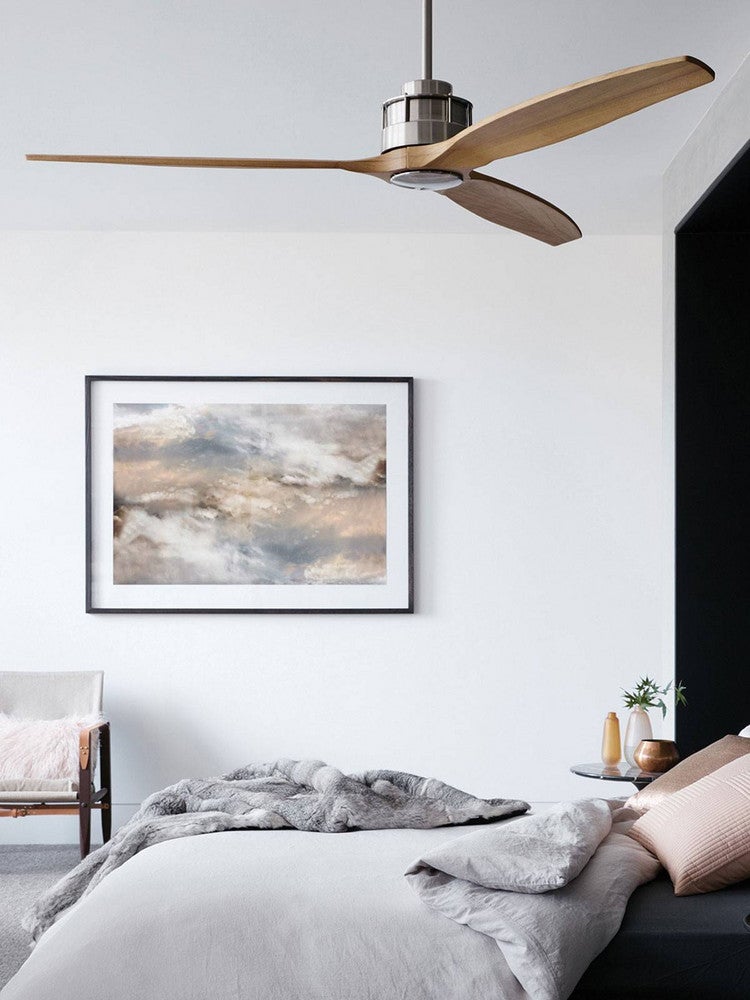8 Tips for a Better Night’s Sleep
Forget counting sheep. These simple tricks will help you fall asleep, for real.
Published Dec 11, 2016 6:00 AM
We may earn revenue from the products available on this page and participate in affiliate programs.
We’ve all been there. Your face is washed, pajamas are on. You hop into bed and snuggle under the duvet…only to then toss and turn for hours, stressing out every time you look at the clock and realize you’re still awake. Or maybe you fall right to sleep but wake up constantly. Either way, if sleep doesn’t come easy, try these expert-recommended tips and tricks to make bedtime a breeze.
Lights Out
It’s simple and intuitive: “Keeping your
bedroom darkis one of the easiest and most effective ways to help ensure you fall asleep faster,” says Dr. Damon Raskin, M.D., an internist specializing in sleep medicine. “Exposure to light lowers the production of melatonin, the hormone that tells us it’s time to fall asleep. It’s known as the ‘vampire hormone,’ because it’s only produced when it’s dark,” he explains. In other words, more light equals less melatonin equals a harder time falling asleep. Installing dimmers is an easy way to darken your bedroom, or opt for lamps with low-wattage bulbs rather than harsh
overhead lighting. Blackout shades are another good option, especially if your bedroom windows get a lot of exterior light.
Eliminate Electronics
Make your bedroom a TV-, tablet-, laptop,- and yes, even cell phone-free zone. Not only do these electronic devices emit artificial light (see our earlier point about keeping your bedroom dark), but they also stimulate your brain. Good luck trying to relax when there are late night emails from your boss popping up or CNN is on in the background. Remove any extraneous stimuli, and it will be much easier for you to fall asleep, notes Raskin.
Rethink What You Do in Bed
“The bed should be reserved for sleeping and sexual activity, and that’s it,” advises Raskin. “When you start to do other things in that space—work, eat—your body and mind start to associate the bed with these other activities.” This goes for even something as seemingly innocuous as reading. If you like to read before you go to sleep, do so in a chair, not in bed. (Consider this an excuse to create a cute reading nook in your bedroom!) Don’t hit the sack until you’re actually ready to sleep.
Quiet Time
Noise can be a major impediment, whether it’s a spouse snoring, outside street noise, or even a pet moving around the room at night, points out Raskin. Even if you don’t think you’re particularly sensitive to these sounds, consider ear plugs. Or try a white noise machine. “They block environmental noise and help you fall asleep,” explains integrative health expert Dr. Taz Bhatia.
Set the Scene
Focus on making your bedroom a calming, soothing environment where you instantly feel relaxed. While this is completely personal and can differ based on the individual, notes Raskin, cool colors—think blues, grays—are typically more calming than bright or warm hues, like red or yellow. Eliminating clutter and streamlining the space can also be beneficial. At the end of the day, you want your bedroom to be a serene oasis, not merely an extension of the rest of your home.
Cut Back on Caffeine
There’s no denying that an afternoon latte is oh-so-enjoyable (not to mention a necessity when the work day is dragging), but it’s best to limit your intake of caffeinated drinks to a total of four ounces earlier in the day, and avoid caffeine completely after 3pm, advises Bhatia. If you do find yourself in need of a little afternoon pick-me-up, she suggests a green smoothie made with kale or spinach, a banana, berries, and chia seeds. “The potassium in the banana and the vitamin C in the berries instantly boost energy, while the protein-packed seeds keep you charged for hours,” she explains.
Turn Down the Temp
Raskin recommends sleeping in a room that’s slightly cooler, so something as simple as lowering the temperature slightly before you go to bed, opting for a lighter blanket, or sleeping in less clothing can work wonders. Installing a ceiling fan with multiple speeds is another alternative; leave it on low overnight for a consistent cool breeze.
Load Up On Lavender
The herb is ideal for combating insomnia. “Lavender is a known nervine, something that calms the nerves,” explains Bhatia. “Inhaling the aroma relaxes the brain’s stress centers, and it’s been used to help with sleep regulation as well.” To reap the benefits, spritz your pillowcases with a lavender spray or dab some lavender essential oil (dilute it with a carrier oil, like jojoba, first) on your temples. Or, for a triple-whammy of relaxation, add some Epsom salts, which contain muscle-relaxing magnesium, and lavender oil to a warm bath and enjoy a stress-busting soak pre-bedtime.
